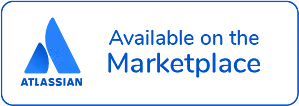With so many benefits including enhanced security, on-demand scaling, cheaper operating expenses, and greater business agility, there's little question that organizations are migrating to the cloud.
For the sake of removing any ambiguity from what has turned into an acronym maze, let's focus on a few examples and definitions of services provided from the cloud through the internet.
The key differences between these technologies must be understood while making business decisions. Let's first define cloud computing before talking about various digital transformation and cloud preparation strategies.
Software-as-a-Service (SaaS)
One of the most common cloud computing services used by businesses to start up and grow their operations is SaaS solutions. SaaS is highly scalable and easy to use because it doesn't necessarily need to be downloaded on particular devices for use across the board. This is especially helpful for global teams that don't work together in close proximity.
SaaS companies use the internet to sell their products to customers. These resources can be used on the device or as online apps like Unicis App or such as Salesforce. A SaaS app does not need to be physically installed on each device with a purchased license by a professional, and access to an application runs in the cloud.
Pros
- Thanks to subscription-based software licensing, businesses may simply identify and disperse costs for multiple business units or divisions. A continuous expense may also be easier to budget for than a big one-time expense every few years.
- Possibly SaaS's best feature is the automatic availability of patches and updates.
- Because there is no disc to install, SaaS-based software can be utilized everywhere there is a network connection. It increases the viability of the mobile office.
Cons
- Publishers are not responsible for upholding data security when they use the SaaS model for their applications.
- SaaS agreements can be complicated to understand, and using licenses improperly is typically met with harsh penalties.
- The vendor acquires the majority of that control through the SaaS method.
With Unicis, you can manage tasks for security, privacy, and compliance team in one place.
Collaborate accross multiple teams about gap analysis, register of procedures and transfer impact assessment.
Function-as-a-Service (FaaS)
With FaaS, on the other hand, the hardware and operating system requirements for hosting a piece of software are handled by the service provider. This change in structural responsibilities allows the user to continue focusing on scripting and running the supporting code needed for their application.
FaaS is an on-demand, pay-per-use service. A function is started by a specific action or event that takes place on an application. After the action is complete, no background processes are functioning. Examples include IBM Cloud Functions, AWS Lambda, and Google Cloud Functions.
Pros
- For a specific amount of bandwidth, you are not needed to pay in advance.
- Applications can scale automatically in response to user traffic or consumption thanks to FaaS solutions.
- Utilizing FaaS, you can submit your full program at once or a single function at a time.
- Apps could operate closer to the end users thanks to the FaaS supplier.
- Function as a Service facilitates iterative development, hastening the deployment of applications.
Cons
- By using a FaaS platform to create your application, you run the risk of growing reliant on that vendor and finding it difficult to switch.
- You can run into problems when setting up a test environment for your application.
- There are situations when a function's execution is delayed, which could be detrimental to some applications.
- It's possible that you lack the transparency necessary to ensure the vendor complies with regulations governing the use or storage of particular types of data, leaving you at the vendor's security mercy.
Unicis combined its SaaS and FaaS offerings
At Unicis, we have the option to balance the benefits and drawbacks of SaaS and FaaS solutions in order to achieve the best of both worlds. Unicis provides patches and updates quickly and on demand. Data security is taken care of by offering services through the Atlassian marketplace. We make sure that our SaaS contracts are easy to understand and that you have the most control over your application. We help you scale automatically in response to user traffic or consumption based on our FaaS capabilities. You won't encounter any issues in the testing environment because everything is integrated. In conclusion, you are in good hands if you use Unicis products.
